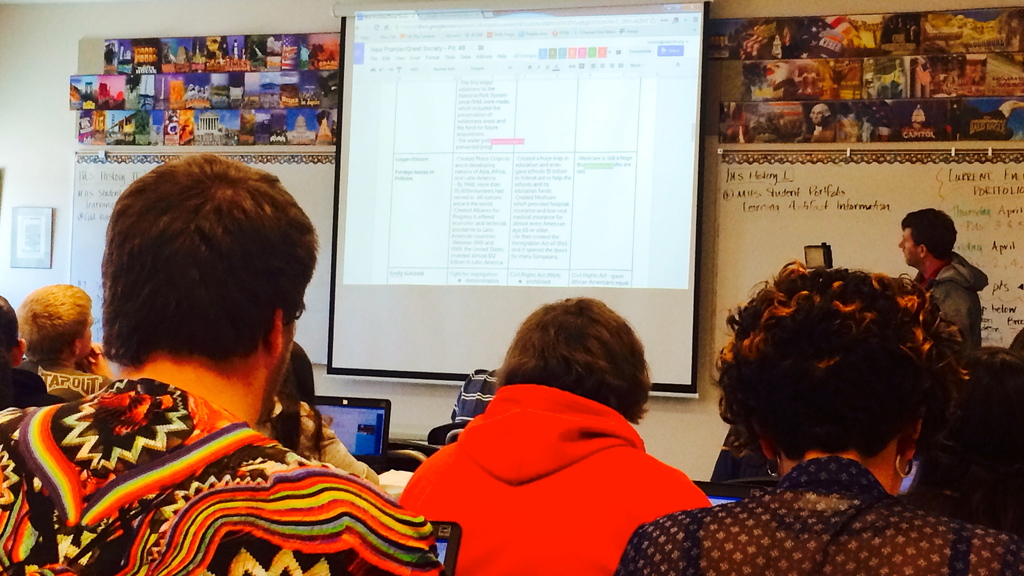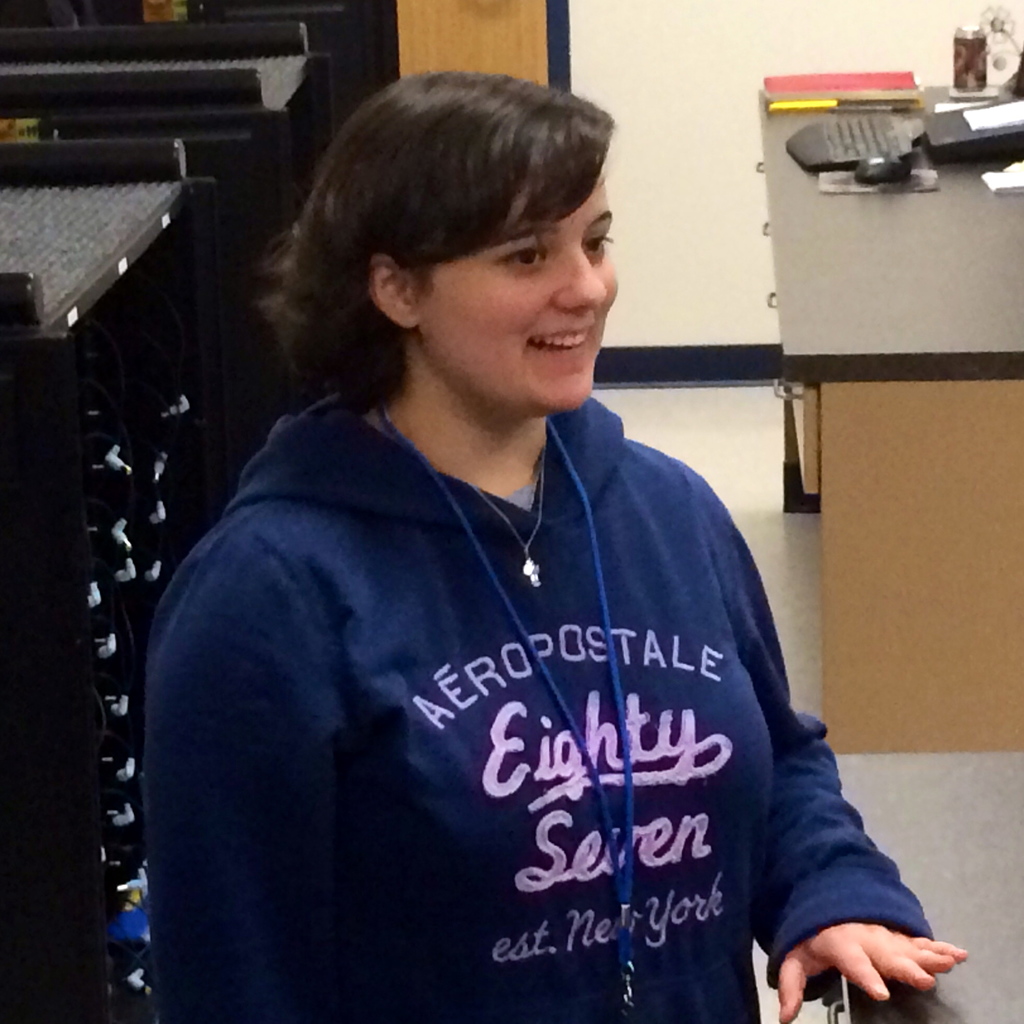EDITOR’S NOTE: Across Idaho, 11 schools are wrapping up the first year of their technology pilot programs. How are the pilots doing, and how have the schools spent their share of $3 million in state grants? For answers, Idaho Education News and Idaho On Your Side, KIVI and KNIN TV, visited three pilot schools, including Middleton High School.
In December, Middleton High School officials surveyed their students, and learned that barely one in four students had ever designed their own website.
That number is trending upward — rapidly.

The students in the class of 2014 are designing personal online portfolios for their senior projects. Ninth- and 11th-graders are getting a jump on the work already. That comes out to 1,100 websites, packed with personal essays, college and career plans and favorite assignments from a student’s high school career.
The goal isn’t just to check off the senior project, a statewide graduation requirement. Nor is the goal simply to provide students some online training. The goal is to prepare Middleton students for the life that awaits them after graduation — the central goal of the high school’s technology pilot project.
Going on
Middleton wanted to dovetail from one grant award to the next. A year ago, the J.A. and Kathryn Albertson Foundation named Middleton “Go On School of the Year” for encouraging graduates to pursue postsecondary education.
With the $427,872.40 state grant — sufficient to buy Middleton enough Lenovo Thinkpad laptop computers to equip every high school student — school officials believe they have given students a tool to help prepare them for their future. School officials deliberately picked a laptop that would fuse with the existing programs already in use in the school, and a laptop that uses the Windows operating system they’re most likely to use in college or in the workplace, said Mike Cozakos, Middleton’s district IT coordinator.
Student responsibilities
Middleton administrators expect students to use their laptops, and use them responsibly.
The school operates on a “no device left behind” policy, Cozakos says. Students are allowed to take their laptops home nights and weekends, and about 95 percent of students choose to do so. If a student leaves a laptop home, the school issues a loaner. If a student forgets a laptop twice in a week, the result is a visit from Lisa Pennington, the school’s one-to-one technology adviser.
But even with hundreds of laptops shuttled between school and home, the school hasn’t had a lost or stolen device, Cozakos said.

Students also represent Middleton’s first line of tech support. When a laptop battery is running on empty, the student sends a message to the help desk, and a classmate delivers a replacement. When a student’s computer is malfunctioning, a classmate is dispatched to work through or around the glitch. Armed with Google help desk training, the tech support team is known around Middleton High School as the “ninjas.”
“They had to get their Google black belt,” said Paige Goodson, the school’s technology integration specialist.
Senior Grace Stone is one of Middleton’s 20 ninjas. She says she has enjoyed the help desk experience. And, like Cozakos, she says her classmates have been responsible with their new devices. “I think they understand the magnitude.”
The laptops at work
Middleton deployed its laptops on Sept. 17 — and a few months later, they have had a noticeable impact in a range of classrooms.
In Kelly Cooke’s junior U.S. history class, the laptops allow students to write collaboratively in a table on civil rights and the Great Society. Students can see what their classmates are contributing. Cooke can see the process as well. It’s one more way the laptops encourage student accountability, Principal Mike Williams said.
The impact is particularly noticeable in Terry Hardy’s class in American sign language. The 21 students watch YouTube videos of ASL in use, which gives them a chance to see how a narrator can use facial expressions and other cues to tell a story. The students will record video assignments on their laptops — which gives them a chance to review their videos and track their progress.
But the culmination may well be the senior projects.
Recently, Williams began the process of grading the projects. They had him up until midnight, he said, because they made for captivating reading. “It’s amazing the work they’ve put into this,” he said.
Compiling the online senior project involved “a lot of kind of trial and error,” said Stone. A lot of ingredients go into a student’s report: the postsecondary plan; a list of colleges where the student has applied; a “learning artifact” from their high school career; a civic engagement report about attending City Council and School Board meetings; and a personal reflection, among other items.
Stone says it would have been easier to have a laptop from the start — and upload items along the way, as the ninth-graders are doing now. But Stone, who will attend Boise State University in the fall and hopes to go into aerospace engineering, says it was useful to look back on her high school years and take stock of what she has already done. “I see it being helpful.”
More reading: Here is our September story from Middleton High School. And a link to Middleton’s grant application. Get more data about Middleton High School — a five-star school, under Idaho’s latest five-star ratings — at Idaho Ed Trends.
Disclosure: Idaho Education News is funded through a grant from the J.A. and Kathryn Albertson Foundation.
